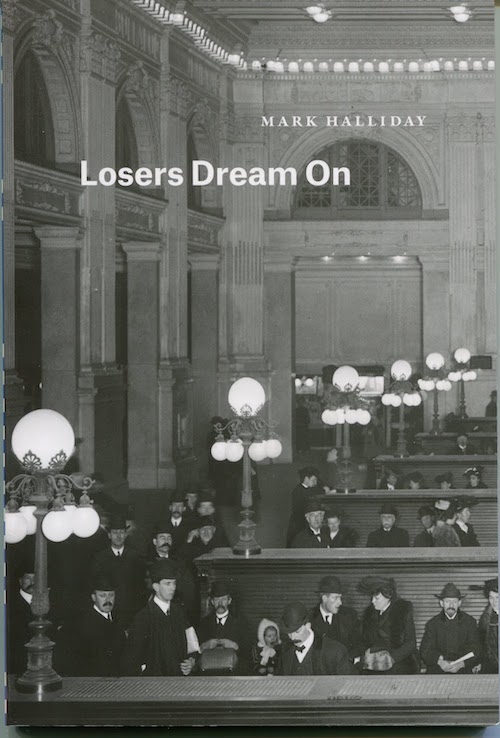Curving through the currents undistractedwith tailfin half as long as its bodyit watches for those whose luck has been absurdbut the sea is vast and I paddle softlyso it seems quite possible the Thresher will miss meeven quite probable in the mapless blue-black floodsprovided I paddle ever softly without splashesnot too close to any school of obvious meatfishwho have not even imagined the strange long tailfinwhich suddenly (the books say) whips the watertill life is nothing but panic—oh let me never knowthat monstrous slapping and the razor teethlet me never fathom the unluckiness of South Sudanor of Yemen or of Syria or of the south side of Chicagolet me swim where misery is a rumor inviting tropesthough my good luck has been absurd and I know itI say I know it I keep saying I know itbut softly lest that long finned force take an interestand with absolute concentration move to teach mehow much a minnow with many metaphors mattersand what are the limits of luck in the blue-black floods.
Shark Fate
Feature Date
- May 18, 2019
Series
Selected By
Share This Poem
Print This Poem
From Losers Dream On (University of Chicago Press)
Copyright © 2018 by Mark Halliday.
All rights reserved.
Reproduced by Poetry Daily with permission.

Chicago, Illinois
University of Chicago
We are all losing all the time. Four titanic forces—time, mortality, forgetting, and confusion—win victories over us each day. We all “know” this yet we keep dreaming of beautiful fulfillments, shapely culminations, devotions nobly sustained—in family life, in romance, in work, in citizenship. What obsesses Halliday in Losers Dream On is how to recognize reality without relinquishing the pleasure and creativity and courage of our dreaming.
Halliday’s poetry exploits the vast array of dictions, idioms, rhetorical maneuvers, and tones available to real-life speakers (including speakers talking to themselves). Often Halliday gives a poem to a speaker who is distressed, angry, confused, defensive, self-excusing, or driven by yearning, so that the poem may dramatize the speaker’s state of mind while also implying the poet’s ironic perspective on the speaker. Meanwhile, a few other poems (for instance “A Gender Theory” and “Thin White Shirts” and “First Wife” and “You Lament”) try to push beyond irony into earnestness and wholehearted declaration. The tension between irony and belief is the engine of Halliday’s poetry.
Poetry Daily Depends on You
With your support, we make reading the best contemporary poetry a treasured daily experience. Consider a contribution today.




